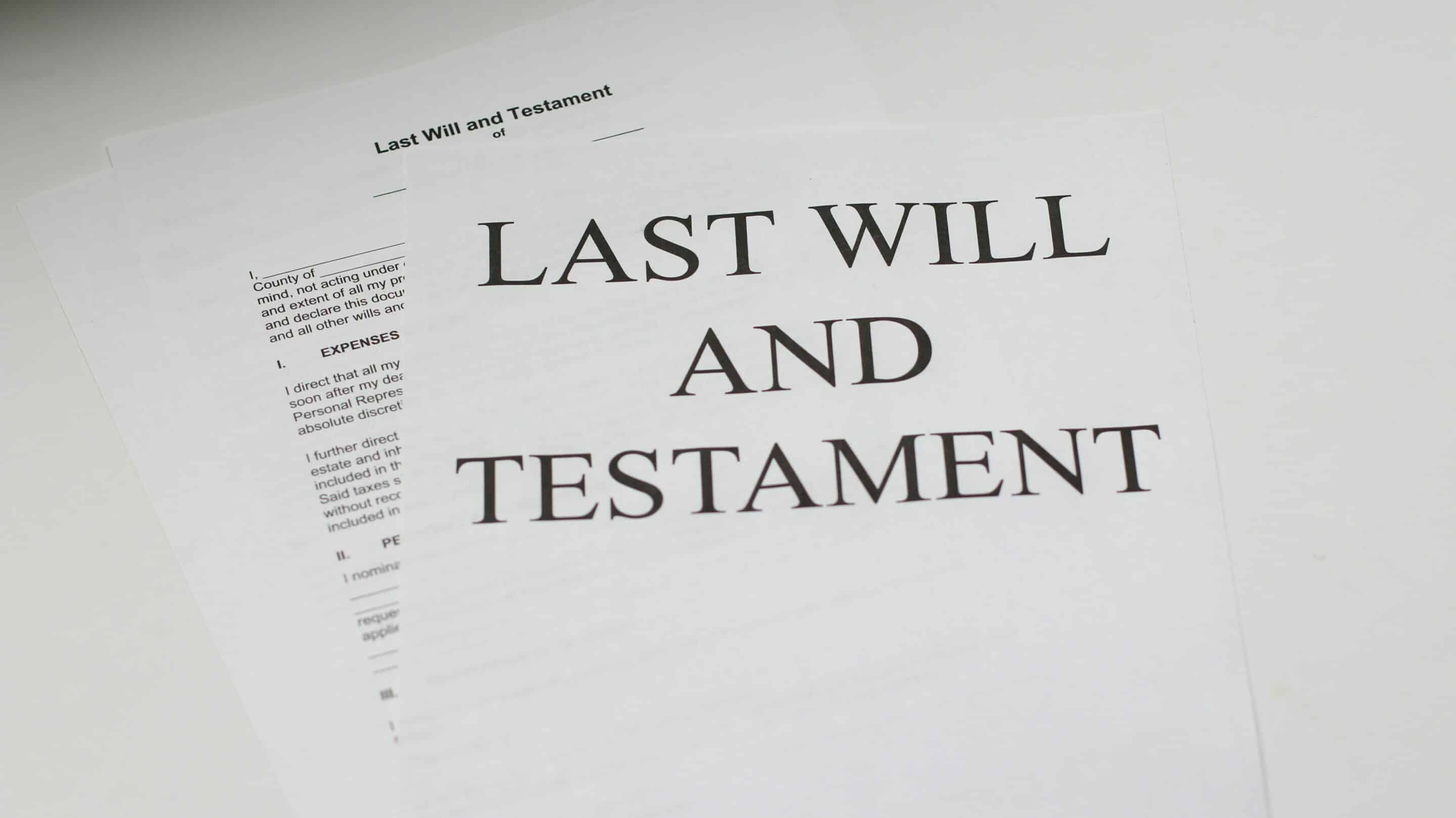A probate lawyer specializes in the legal process of settling the estate of a deceased person, known as probate. Their services include providing guidance and representation in estate planning, managing the probate process, filing the necessary documentation with the courts, and resolving any disputes that may arise. They also work closely with executors to ensure that the deceased’s final wishes are carried out, and are even sometimes chosen to act as the executor of the estate if there is no one else more suitable.
Key responsibilities of a probate lawyer include:
- Guides the family through the probate process
- Opening probate with the Surrogate’s Court
- Preparing necessary legal documentation
- Retitling assets in beneficiaries’ names
- Resolving disputes among beneficiaries
- Identifying and inventorying estate assets
- Liquidating assets and real estate
- Paying off any debts
- Distributing estate property
Probate lawyers typically charge fees for their services, which can vary depending on the complexity of the estate and the services provided.
Hiring an experienced probate attorney will help you settle the affairs of the decedent in a timely and efficient manner. They can also provide valuable legal expertise and support to the executor, ensuring that the probate process is conducted in accordance with state law and the wishes of the deceased.
What’s the Difference Between a Probate Estate Lawyer and Estate Planning Lawyer?
They have different roles within estate law and provide their services at different times in a person’s life.
However, since these fields are very closely related, most attorneys that specialize one of these will typically specialize in both, and this can be seen as a benefit. You ideally want an attorney that doesn’t just write the plan, but also has the experience executing upon it.
Probate Lawyer
- Handles estate administration after a person’s death
- Ensures the deceased person’s assets are distributed according to their will or state law
- Represents the personal representative or executor in probate court
- Assists with resolving disputes among beneficiaries
- Primary goal: to facilitate a smooth and efficient distribution of the deceased person’s estate
Estate Planning Lawyer
- Estate attorneys provide legal advice clients on estate planning matters before death, incapacity and similar situations
- Helps create wills, trusts, and other probate legal documents to manage and distribute assets
- Provides guidance on minimizing estate inheritance taxes
- Assists with naming guardians for minor children
- Primary goal: to help clients plan for the distribution of their assets and ensure their wishes are carried out
What Probate laws are specific to New York?
Probate laws in New York are governed by specific statutes and regulations that outline the processes and procedures for settling a deceased person’s estate. In New York, as in most states, probate is a type of family law.
These laws cover various aspects such as:
- The administration of the deceased individuals assets
- Appointment of executors or administrators
- Distribution of assets
- What happens when someone dies without a will (known as “intestate”)
- and any disputes or challenges that may arise during the probate process.
Understanding the specific probate laws in New York is crucial for anyone involved in the estate administration, whether it is a family member, executor, or beneficiary. It is important to navigate these laws carefully to ensure that the wishes of the deceased are carried is handled in accordance with the legal requirements of the state.
Understanding the New York Probate Process
The necessary steps to enter a will into probate in New York include filing the will with the Surrogate’s Court, notifying the decedent’s next of kin and beneficiaries, and settling any outstanding debts and taxes. The Surrogate’s Court, which handles probate matters in New York, oversees the probate process and ensures that the deceased’s assets are distributed according to their will or, if there is no will, according to state intestacy laws.
One of the key differences between New York and most other states is the availability of simplified probate procedures for small estates. In New York, beneficiaries and heirs may be able to use simplified procedures in transfer of property without the involvement of the Surrogate’s Court it meets certain requirements.
Additionally, New York has specific procedures for transferring and selling probate real estate, such as real estate, that are unique to the state and may require additional steps or documentation.
Overall, the New York probate process can be complex, and it is important to consult with a qualified attorney to ensure that the process is completed correctly and efficiently.
When There Is a Will
Here’s what a New York probate lawyer does in cases where a valid will is present:
- Reviews the will to ensure its validity and compliance with state laws
- Advises executors and beneficiaries on their rights and obligations throughout the probate process
- Assists in the execution of the terms of the will, including distribution of assets and payment of debts
- Handles any challenges to the will, such as claims of invalidity or undue influence
- Represents parties in probate litigation, defending or contesting the will in court
When There Is No Will
When there is no will in New York, the process for distributing estate assets is determined by state intestacy laws. These laws dictate how the deceased person’s properties will be inherited. The role of a probate attorney is crucial in ensuring that the assets are distributed according to state law.
There are two additional steps when there is no will in place that a probate lawyer will help with:
- Securing renunciations from other relatives who may have a higher priority to become the administrator.
- Filing necessary statements with the probate court, such as a petition for letters of administration, to officially appoint the estate administrator.
It is important to follow state law in distributing assets to avoid legal issues, regardless of the deceased person’s wishes. State intestacy laws are in place to ensure that the estate is distributed fairly and in accordance with legal requirements.
Common Difficulties within the Probate court
Probate court often deals with a variety of disputes and challenges when it comes to settling an estate. The two most common issues in New York probate court are:
- The presence of heavy debt, which can complicate the distribution of assets to beneficiaries.
- Disputes among heirs over the distribution of assets or the validity of the will can also prolong the probate process.
How to find a Probate Lawyer
Here are a few ways to find a Probate Lawyer:
Start with the attorney that wrote the will – if there is a will, it usually makes the most sense to start your search with the person who wrote it. First of all, they may be in possession of the executed copy of the will which is necessary to start the process. Additionally, since they drafted the will, they will have a clearer understanding of how it should be executed upon and a better understanding of the wishes of the deceased.
Find someone local – Probate needs to be filed with the Surrogate’s Court in the county where the person was living when they died. Depending on the complexity of the estate and any disputes, there may be multiple court appearances necessary so it is best to have an attorney local to the court where probate is being filed.
Referrals from family and freinds – making a decision on who to hire can be scary because you never know what you’re going to get. Finding a firm or lawyer that your friends or family have worked with in the past, will often put your mind at ease that you’re making the right decision.
Look at reviews – you should do research regardless of who you’re working with. Sites like Super Lawyers and Avvo do a great job of collecting reviews and testimonials.
Questions to Ask a Probate Attorney
When interviewing a probate attorney, here are a few questions to ask:
- What is your experience in probate law and estate planning? How long have you been practicing for?
- Have you handled similar cases to mine in the past?
- How familiar are you with the specific court assigned to my case?
- What is the typical duration of a case like mine?
- Can you provide an estimate of your fees for handling my case?
- Do you specialize solely in probate law or do you practice other areas of law as well?
- What legal documents are needed to proceed with Probate in New York? (including estate tax returns, life insurance policy, proof of Real Property, estate plans, property appraisal, and more)
When interviewing a probate attorney, it is important to gather information about their experience, practice areas, familiarity with the court, case duration, and costs. Inquiring about their experience in probate law and estate planning, handling similar cases, and practicing before the court assigned to your case can provide insight into their qualifications. Additionally, understanding their fees and whether they practice other areas of law can help you determine if they are the right fit for your needs.
How Much Do Probate Lawyers Charge?
Probate lawyers typically charge for their services in a few different ways, including:
- Hourly rates: Lawyers may charge by the hour for their time spent working on the probate process and tasks.
- Flat fees: Some lawyers may offer a flat fee for handling the entire probate process, regardless of the amount of time spent on the case.
- In some cases, probate lawyers may charge a percentage of value as their fee.
Factors that can influence the fees charged by probate lawyers include:
- Experience level: More experienced probate lawyers may charge higher fees for their services.
- Geographic location: Probate lawyer fees can vary based on the cost of living and demand for legal services in a particular area.
- Complexity of the case: More complex probate cases may require more time and resources, leading to higher fees.
It’s important to consider these factors when hiring a probate lawyer and to be aware of state laws that may regulate probate lawyer fees. Don’t be afraid to ask as many questions as you need to feel confident in what firm and lawyer you choose to represent your loved one and their legal matters.

